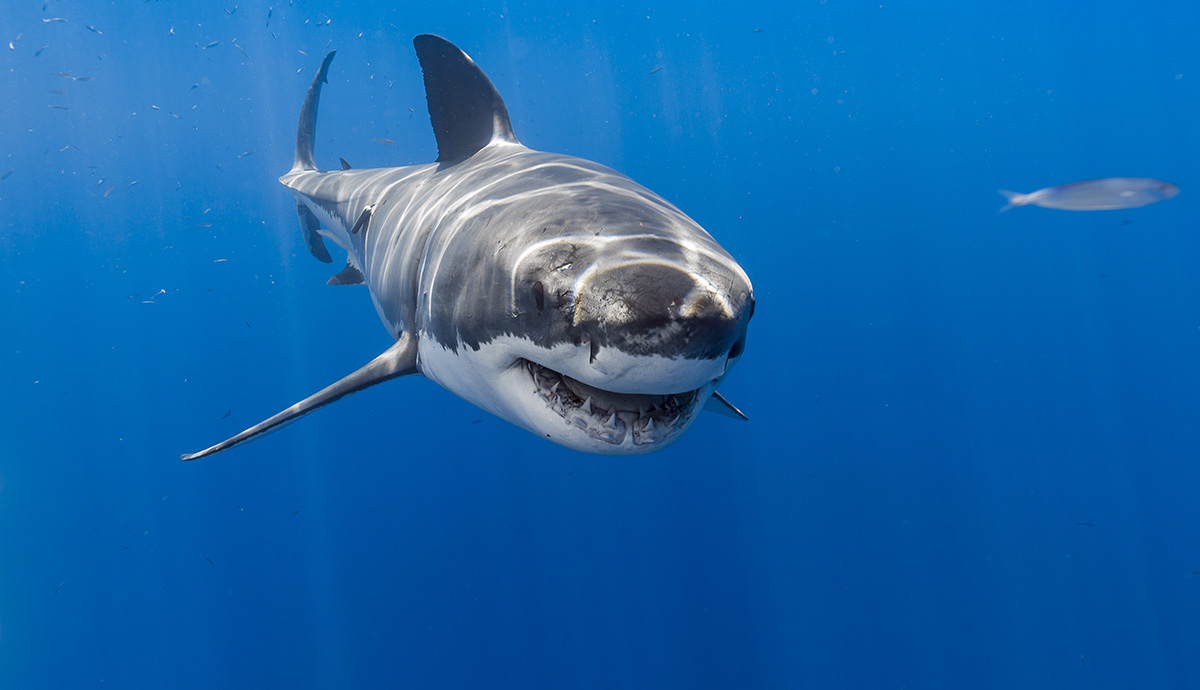March 30, 2017
Study to analyse social media sentiment about sharks
Researchers examine Facebook and Twitter posts to understand community attitudes to shark management policy
Just as the rise of social media has given people a new way to share their thoughts and opinions with the world, it has also given researchers a new way to tap into those thoughts and to measure and analyse public opinion, particularly with regard to hot-button issues.
One issue that has been pushing people’s buttons over the past couple of years is how to prevent shark attacks, following a number of high profile incidents on NSW beaches. In 2015 there were a reported 14 unprovoked shark attacks in NSW, including one fatality; in 2016 there were eight unprovoked attacks and no fatalities; and in 2017 to date there has been one unprovoked attack and no fatalities.
Whenever a surfer or swimmer is bitten, social media lights up with arguments over the pros and cons of shark management strategies, with the use of shark nets the most contentious issue. Those in favour of nets say they reduce the risk of attack; those opposed say they kill an unacceptable amount of wildlife – fish, stingrays, turtles, whales and dolphins, as well as sharks.
A team of researchers from University of Wollongong (UOW) and Charles Sturt University (CSU) has been awarded a grant by the NSW Department of Primary Industries (DPI) to study community sentiment towards sharks and shark management strategies. The ultimate aim is to help develop a solution that minimises risks to surfers, swimmers and other ocean users, while also reducing harm to a variety of marine species.
Associate Professor Peter Simmons and Dr Michael Mehmet from CSU and Associate Professor Rod Clarke from UOW’s Faculty of Business will analyse social media content in order to better understand people’s attitudes towards sharks, what influences these attitudes, and what beliefs are particularly powerful or common.
They will also interview individuals and stakeholder groups along the NSW coast, including surfers, surf life savers and life guards, conservation groups, tourism businesses and councils. Professor Clarke said the team had collected a large body of data from Facebook and Twitter, which they would analyse using newly developed techniques.

“The aim is to see how citizens and different groups of stakeholders view sharks,” Professor Clarke said. “Specifically, what does public sentiment look like, which groups are adopting what positions, how deeply are those positions held and how does that vary over time.
“We’re developing a more sophisticated method of gauging sentiment on social media. The way sentiment is measured now is by looking at individual words and rating them as either positive or negative. We will be able to look at expressions rather than single words which will give us a more nuanced understanding.”
Project leader Professor Simmons said it was important to understand the views of a range of different stakeholders.
“We will conduct a series of interviews and focus groups with stakeholders – surfers, bathers, tourism operators, local government, lifesavers and others,” he said. “We know we will find different attitudes to coexistence and management options. Our aim is to develop deep insights into different stakeholder perspectives, where they come from, and how they are evolving and influenced.”
